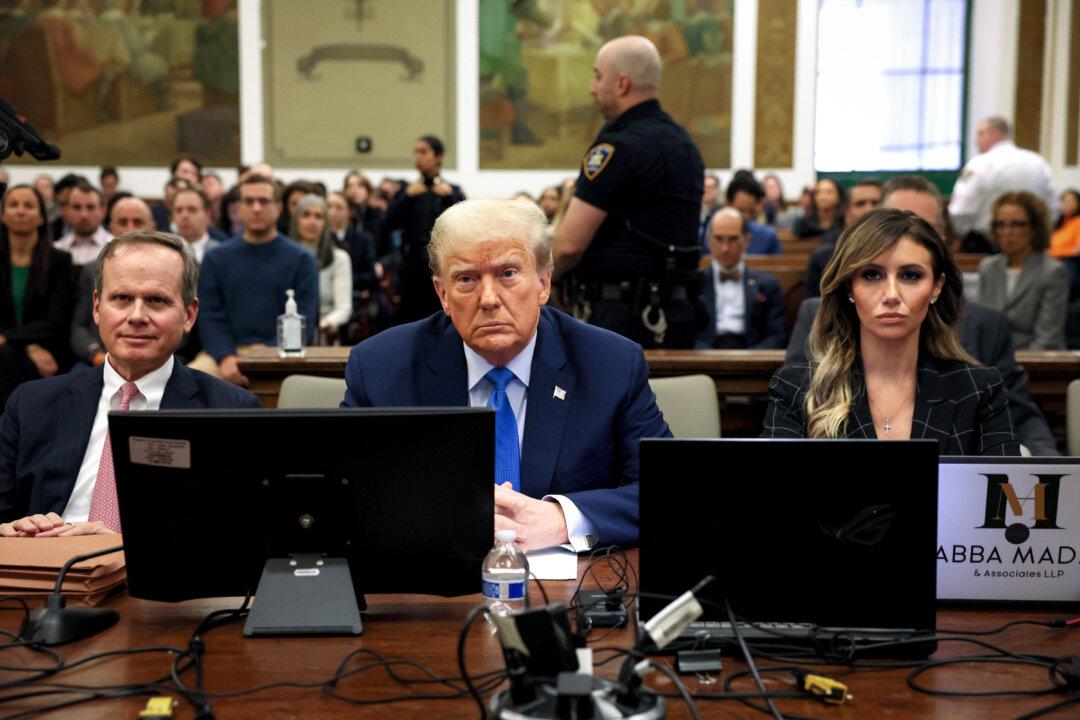Attorneys for former President Donald Trump asked a New York judge to vacate his recent order blocking parties from filing new motions, arguing the order “violates” several state court mandates.
New York Supreme Court Justice Juan Merchan is presiding over a criminal case Manhattan District Attorney Alvin Bragg is prosecuting against President Trump over allegedly falsifying business records.





